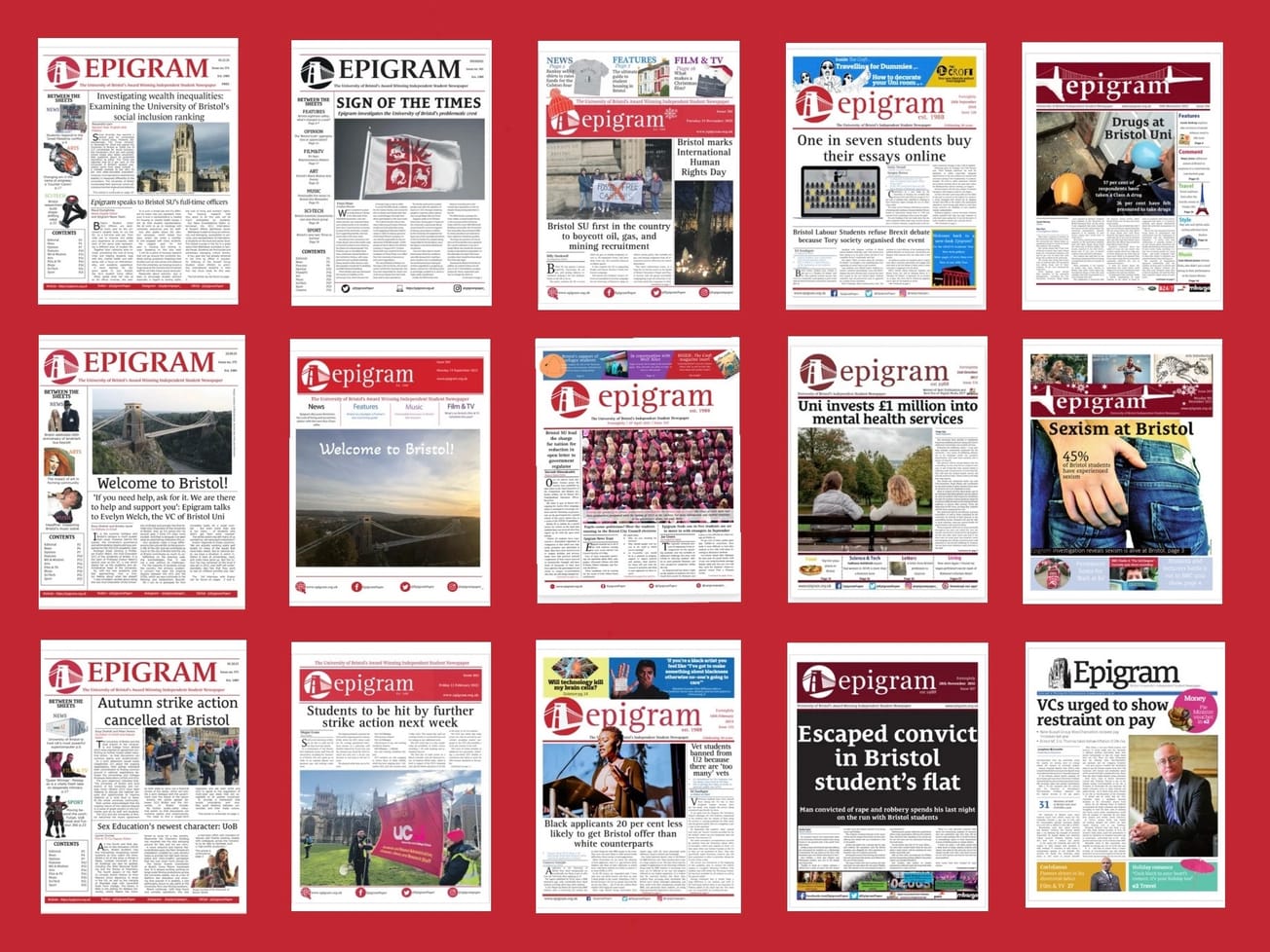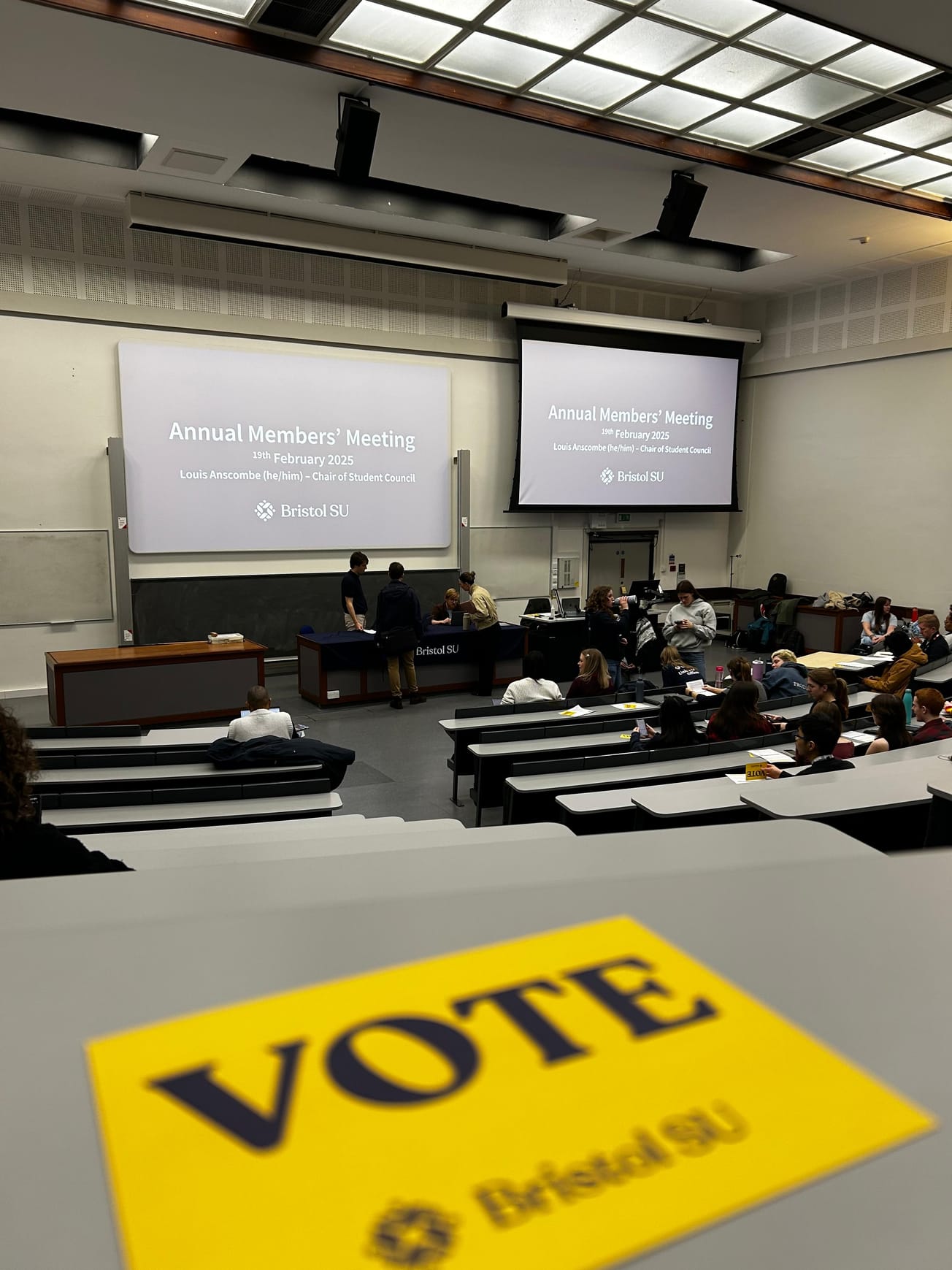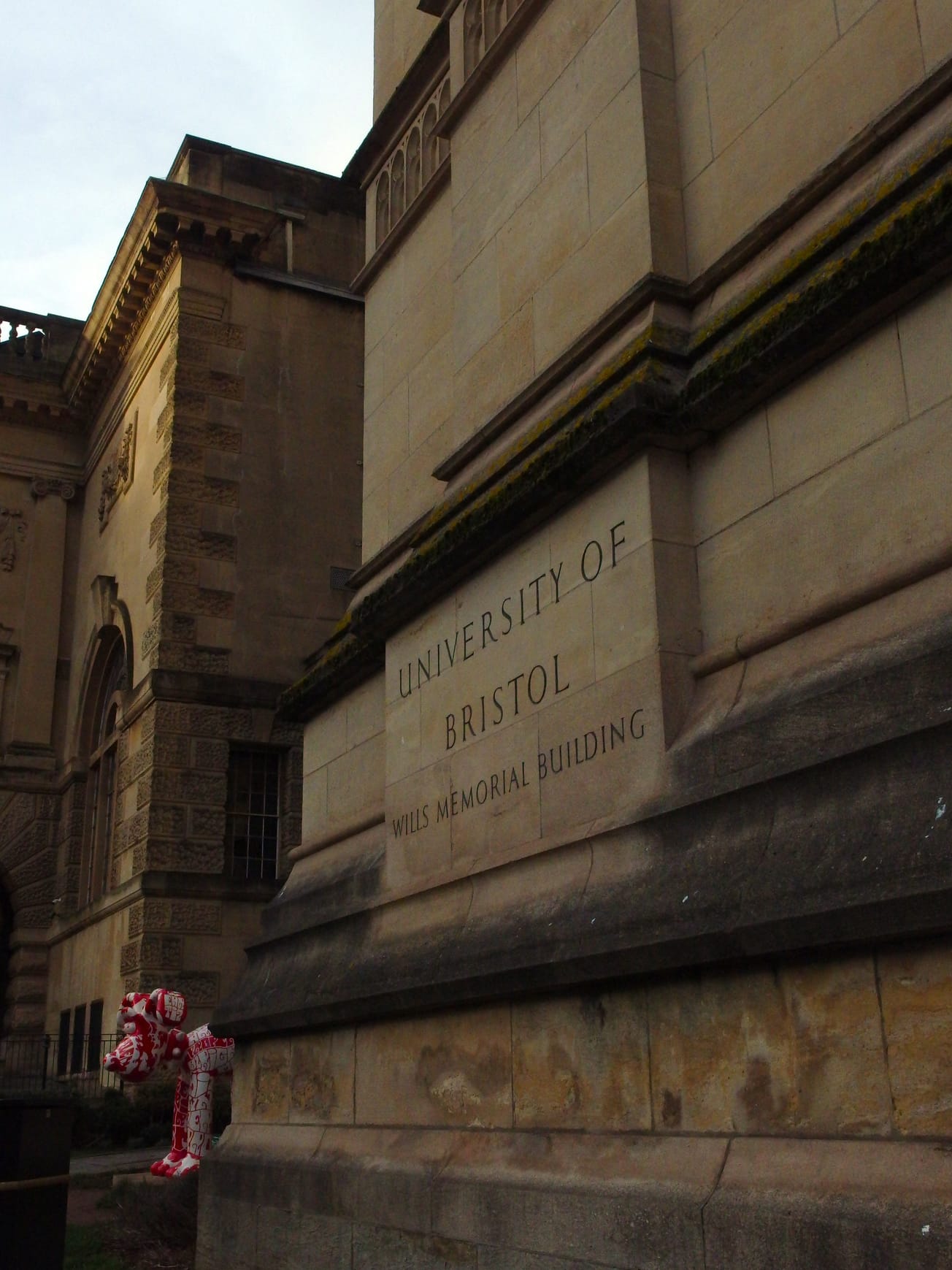by Amelia Jacob, Co-Editor-in-Chief
Today, March 7th 2024, Epigram, the University of Bristol’s independent student newspaper, marks its 35th anniversary.
Before Epigram was created, there were several iterations of a student newspaper at Bristol, including The Magnet, which was founded in 1898 at University College Bristol – 10 years before the University officially formed.
In 1908 staff members created The Bristol University College Gazette, and in 1910 the Nonesuch was formed, Bristol’s first student publication as a University. The term “Nonesuch” refers to the floral emblem of Bristol, which gives its red colour to the University’s academic hoods. This publication was printed once a term, but now refers to the University of Bristol’s alumni magazine.
In 1945 a group of students set up Nonesuch News, but the publication made only £7 in sales. The next iteration of a student newspaper at Bristol was Bacus, the first publication to be printed weekly. However, it stopped production in 1989 after the Student’s Union withdrew funding and set up its own newspaper – Epigram.
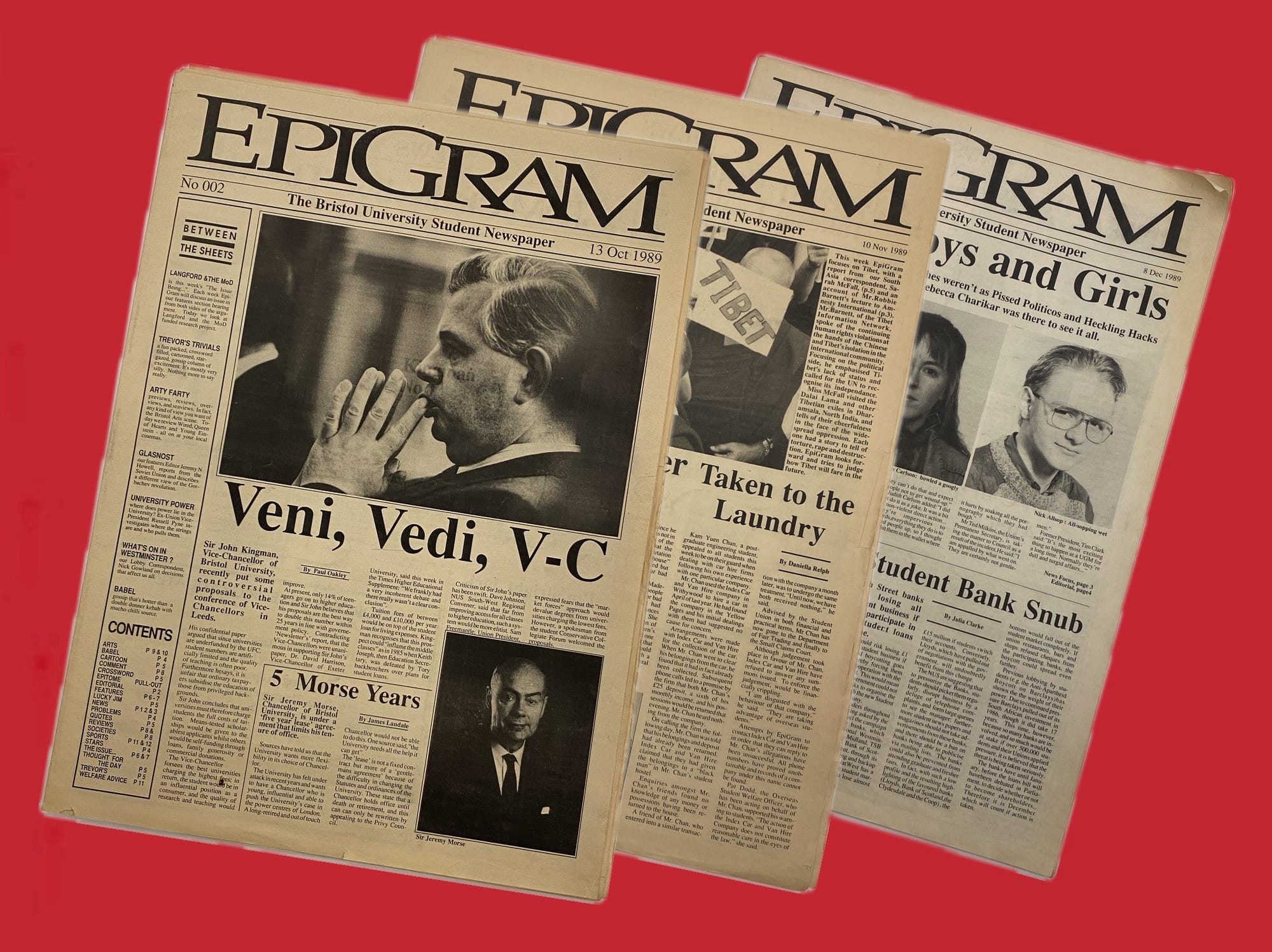
James Landale, the BBC’s Diplomatic Correspondent, was Epigram’s first Editor-in-Chief. In a statement to Nonesuch magazine for Epigram’s 25th anniversary, he commented: ‘I would hand-deliver the final disc [containing the newspaper] to the printers, who would chuck it on their to-do pile between the freesheets and smutty magazines.’
‘Early editions were strewn with my own caprice. The humour is too arch, the copy in need of subbing and the pictures ropey. But there are some good stories, the listings are comprehensive and the sum is greater than the parts.’
‘The task I set Epigram was to interest and inform students, and make them aware of what they could find and do outside of the library. I hope it will keep working at the same task. At a university, as in society, newspapers can play an important role.’
Since Landale’s tenure, several high profile journalists have emerged from Epigram, including Susanna Reid, TV presenter and journalist for ITV; Krissi Murison, the current Deputy Editor of The Sunday Times; and Peter Hyman, who was Tony Blair’s chief speech writer.
Epigram was the first student newspaper in Europe to go online and the first student newspaper in the country to be printed in colour.
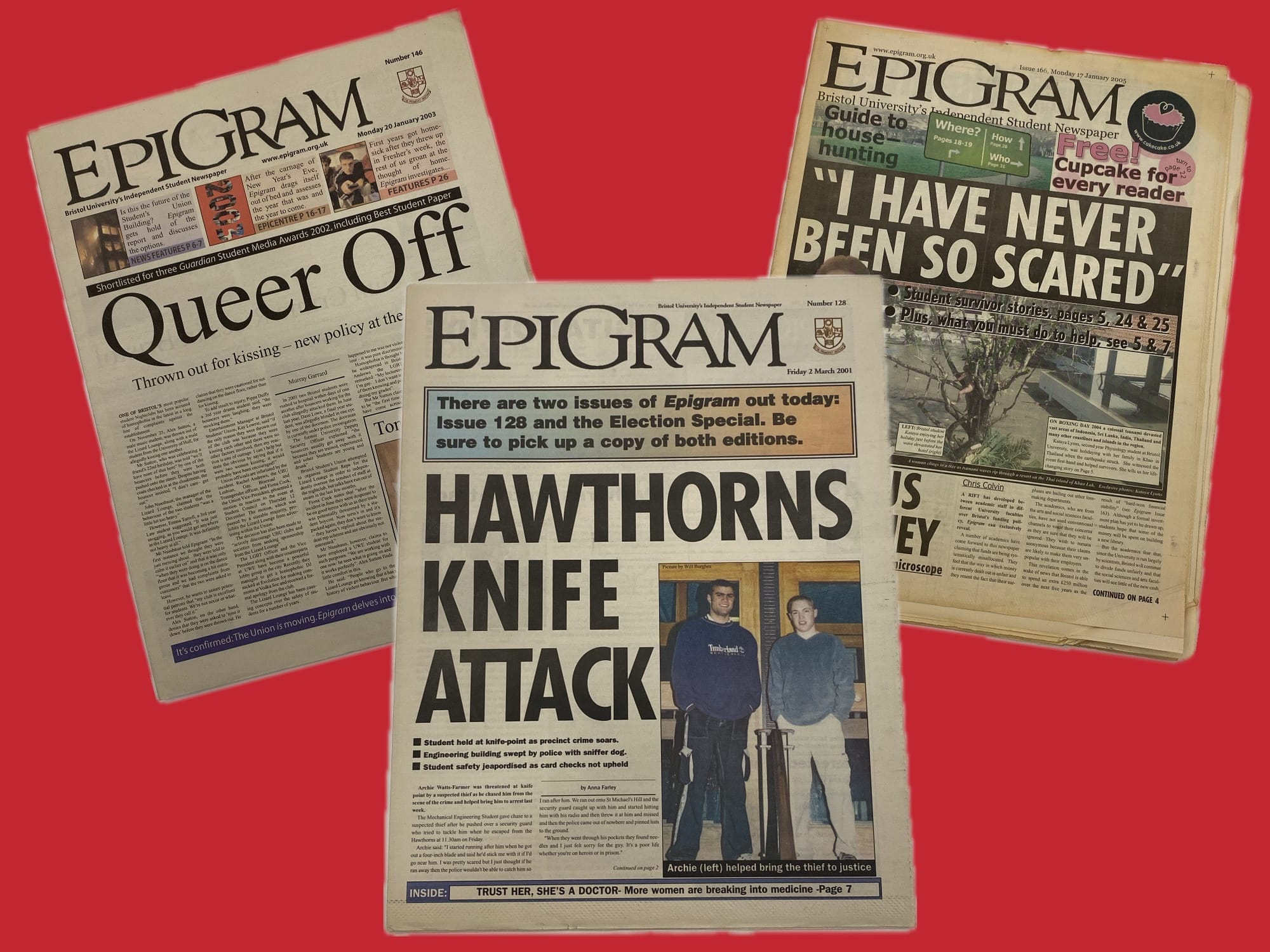
In the early noughties, Epigram took a tabloid approach. This was initiated by Craig Woodhouse (Editor-in-Chief 2003/4) who is now the Head of Communications at Williams Racing. Infamous stories during this time include 18-year-old student Rosie Reid, who chose to sell her virginity online to repay her debts.
In recent years, Epigram has moved its focus to providing a voice for students, and has reduced its print run in an attempt to mitigate its environmental impact. The landscape of journalism has shifted, with an increased focus on digital journalism and social media.
This year, Epigram has printed six physical editions, and we have published hundreds of articles on our website. At the end of February, we celebrated our 35th anniversary with a ball at Goldney Hall. As Epigram looks to the future, we hope interest in student journalism at Bristol continues to evolve.
Image: Amelia Jacob
